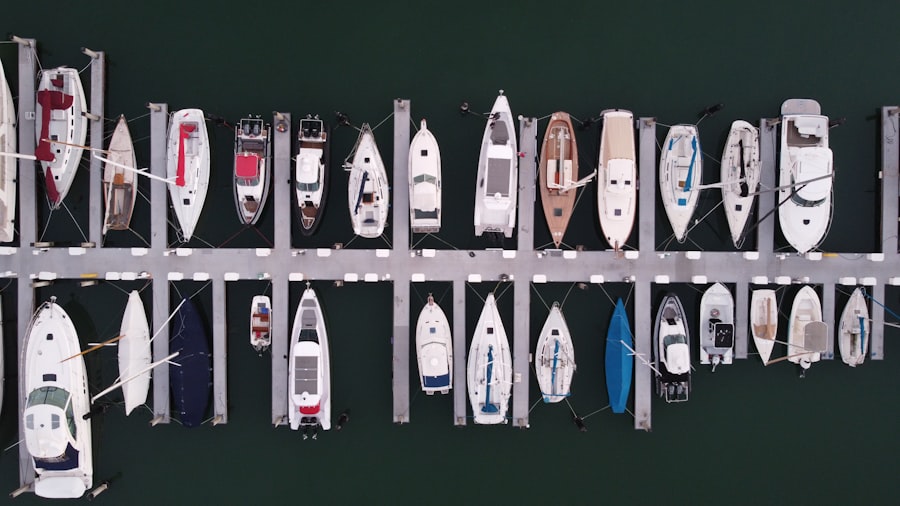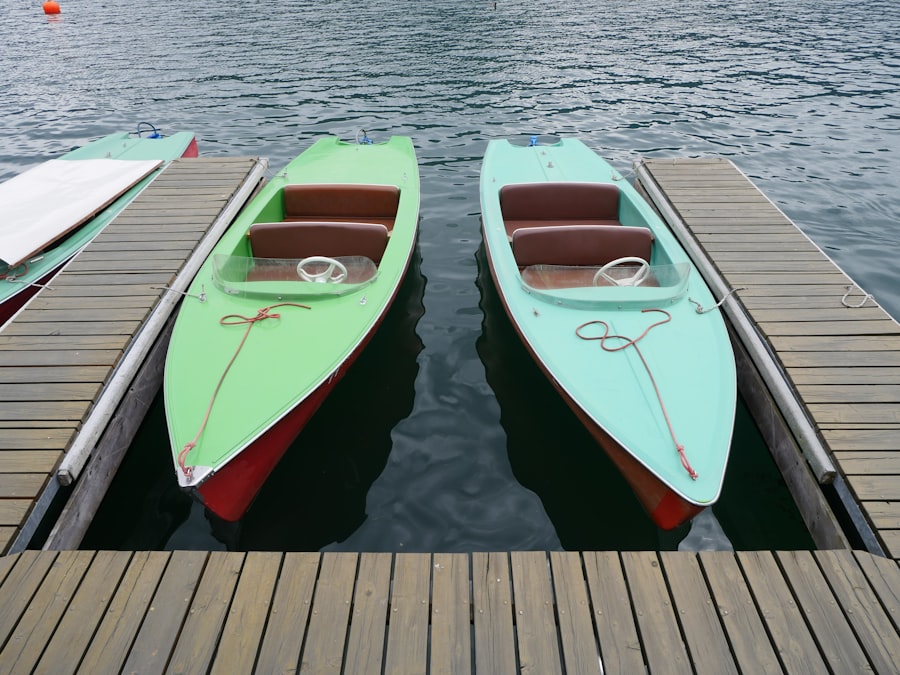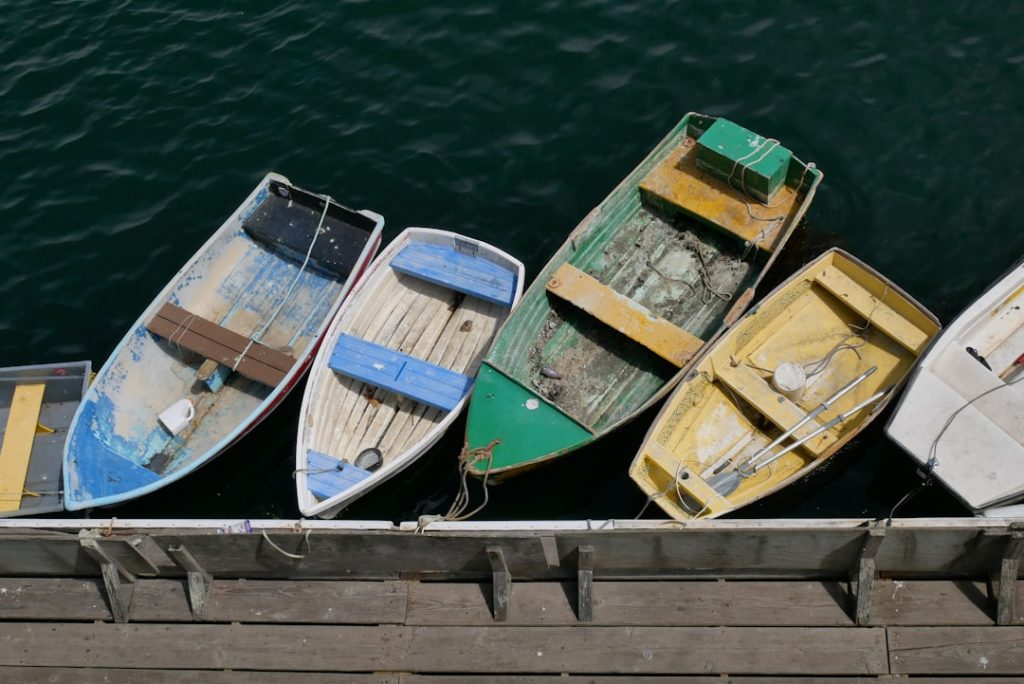Aluminum boats have gained immense popularity among boating enthusiasts for a multitude of reasons. One of the most significant advantages is their lightweight nature, which enhances fuel efficiency and makes them easier to maneuver. This characteristic is particularly beneficial for smaller vessels, where weight can significantly impact performance.
The reduced weight allows for quicker acceleration and easier handling, making aluminum boats an excellent choice for both novice and experienced boaters. Additionally, the lightweight design facilitates easier towing and launching, which can be a considerable advantage for those who frequently transport their boats. Durability is another hallmark of aluminum boats.
Unlike fiberglass or wooden boats, aluminum is resistant to rot, rust, and corrosion, especially when treated with protective coatings. This resilience means that aluminum boats can withstand harsh marine environments, including saltwater conditions, without succumbing to the wear and tear that often plagues other materials. Furthermore, aluminum’s inherent strength allows for thinner hull designs without compromising structural integrity, which can lead to improved performance and stability on the water.
This durability translates into lower long-term maintenance costs, making aluminum boats a financially savvy investment for many boaters.
Key Takeaways
- Aluminum boats offer durability, lightweight design, and resistance to corrosion.
- Important factors when choosing include size, purpose, and budget.
- Used aluminum boats can be found through dealers, online marketplaces, and boat shows.
- Inspecting a used boat involves checking the hull, welds, and overall condition.
- Regular maintenance and customization enhance performance and longevity.
Factors to Consider When Choosing an Aluminum Boat
When selecting an aluminum boat, several critical factors must be taken into account to ensure that the vessel meets your specific needs and preferences. First and foremost is the intended use of the boat. Different activities such as fishing, recreational cruising, or water sports require different designs and features.
For instance, a fishing boat may need a flat bottom for stability in shallow waters, while a recreational boat might prioritize comfort and seating arrangements. Understanding how you plan to use the boat will guide you in choosing the right model. Another essential consideration is the size of the boat.
The length and width of the vessel will affect its stability, capacity, and overall performance. A larger boat may offer more space for passengers and gear but can be more challenging to handle and transport. Conversely, a smaller boat may be easier to manage but could limit your activities on the water.
Additionally, consider the horsepower requirements and engine options available for the boat size you are interested in. Matching the right engine with your aluminum boat is crucial for achieving optimal performance and efficiency.
Where to Find Aluminum Boats for Sale

Finding the perfect aluminum boat involves exploring various avenues to ensure you get the best deal possible. One of the most common places to start your search is through local dealerships that specialize in marine products. These dealerships often carry a range of new and used aluminum boats from reputable manufacturers, providing you with the opportunity to see the boats in person and ask questions about their features and specifications.
Additionally, many dealerships offer financing options, making it easier to purchase your desired vessel. Online marketplaces have also become increasingly popular for buying aluminum boats. Websites such as Boat Trader, Craigslist, and eBay provide extensive listings of both new and used boats from private sellers and dealers alike.
These platforms allow you to filter your search based on various criteria such as price range, location, and specific features. However, when purchasing online, it is crucial to conduct thorough research on the seller and arrange for an inspection before finalizing any transactions. Social media groups dedicated to boating enthusiasts can also be valuable resources for finding boats for sale, as members often share listings or recommendations.
How to Inspect a Used Aluminum Boat
| Inspection Area | What to Check | Common Issues | Recommended Action |
|---|---|---|---|
| Hull Condition | Look for dents, cracks, corrosion, and previous repairs | Oxidation, deep scratches, structural damage | Inspect closely; minor dents may be cosmetic, major cracks require professional evaluation |
| Welds and Seams | Check for cracks, rust, or separation along weld lines | Cracked or corroded welds can compromise integrity | Have a professional inspect and repair if necessary |
| Transom | Inspect for rot, corrosion, and secure mounting points | Loose or damaged transom can cause engine mounting issues | Test engine mount stability; repair or reinforce if needed |
| Interior | Check flooring, seats, and storage compartments for damage or corrosion | Water damage, rust, or weakened structural components | Replace or repair damaged parts; ensure proper drainage |
| Electrical System | Test all wiring, lights, and battery connections | Corroded wires, faulty connections, dead batteries | Replace corroded wiring; test and replace batteries if needed |
| Engine and Controls | Inspect engine condition, throttle, steering, and controls | Leaks, corrosion, stiff controls, engine performance issues | Run engine test; service or repair controls as necessary |
| Trailer (if included) | Check frame, tires, lights, and winch | Rust, worn tires, broken lights, faulty winch | Service or replace damaged components |
Inspecting a used aluminum boat is a critical step in ensuring that you make a sound investment. Begin by examining the exterior of the hull for any signs of damage or wear. Look for dents, scratches, or signs of corrosion that could indicate underlying issues.
Pay particular attention to welds and seams, as these areas are often prone to stress fractures or leaks. A thorough inspection should also include checking the transom for any signs of weakness or rot, as this can significantly affect the boat’s performance. Once you have assessed the exterior, turn your attention to the interior components of the boat.
Check the condition of the flooring, seating, and any storage compartments for signs of water damage or mold. Ensure that all electrical systems are functioning correctly by testing lights, pumps, and any onboard electronics. Additionally, inspect the engine if applicable; look for signs of leaks or corrosion around connections and hoses.
If you are not confident in your ability to assess these components thoroughly, consider hiring a marine surveyor who can provide a professional evaluation of the boat’s condition.
Customizing Your Aluminum Boat
Customizing an aluminum boat allows owners to tailor their vessels to meet specific needs and preferences. One popular modification is adding additional storage solutions such as rod holders or tackle boxes for fishing enthusiasts. These enhancements can significantly improve organization and accessibility while out on the water.
Additionally, installing custom seating arrangements can enhance comfort during long outings or family trips. Another area ripe for customization is electronics and navigation systems. Upgrading to modern GPS units or fish finders can greatly enhance your boating experience by providing real-time data on water conditions and fish locations.
Furthermore, adding sound systems or lighting can create a more enjoyable atmosphere during evening outings or social gatherings on the water. Custom paint jobs or decals can also personalize your boat’s appearance, allowing you to express your style while ensuring your vessel stands out on the water.
Maintenance Tips for Aluminum Boats

Proper maintenance is essential for prolonging the life of an aluminum boat and ensuring optimal performance over time. One of the most critical aspects of maintenance is regular cleaning. After each outing, rinse off saltwater or debris with fresh water to prevent corrosion and buildup on the hull.
Using a mild soap specifically designed for marine applications can help remove stubborn stains without damaging the aluminum surface. In addition to cleaning, periodic inspections are vital for identifying potential issues before they escalate into costly repairs. Check all fittings, seals, and hardware regularly to ensure they are secure and functioning correctly.
Pay special attention to areas prone to wear such as hinges on storage compartments or connections on electrical systems. If you notice any signs of corrosion or damage during your inspections, address them promptly by applying protective coatings or seeking professional assistance if necessary.
The Best Places to Take Your Aluminum Boat
Aluminum boats are incredibly versatile and can be used in various aquatic environments, making them suitable for numerous locations across the globe. Lakes and rivers are ideal settings for aluminum boats due to their shallow drafts and ability to navigate tight spaces with ease. Many freshwater lakes offer excellent fishing opportunities where anglers can take advantage of their lightweight vessels to access remote areas that larger boats cannot reach.
Coastal regions also present fantastic opportunities for aluminum boat owners. These boats are well-suited for nearshore fishing or recreational cruising along scenic coastlines. Their durability against saltwater conditions makes them a reliable choice for ocean outings as long as proper maintenance practices are followed.
Additionally, many aluminum boats are designed with stability in mind, allowing them to handle choppy waters effectively while providing a comfortable ride for passengers.
The Future of Aluminum Boats
The future of aluminum boats appears promising as advancements in technology continue to enhance their design and functionality. Innovations in welding techniques have led to stronger joints and lighter hulls without sacrificing durability. This evolution allows manufacturers to create more efficient vessels that cater to a broader range of boating activities while maintaining affordability.
Moreover, environmental considerations are becoming increasingly important in the boating industry. Aluminum’s recyclability positions it as an eco-friendly option compared to other materials like fiberglass or plastic composites that contribute significantly to landfill waste. As sustainability becomes a priority among consumers, manufacturers may focus on developing more environmentally friendly production processes while promoting aluminum’s benefits as a sustainable choice in boating.
In conclusion, aluminum boats offer numerous advantages that make them appealing choices for various boating activities. With careful consideration during selection and maintenance practices in place, these vessels can provide years of enjoyment on the water while adapting to future trends in technology and sustainability.


